Discover your life goals
If I stopped you on the street.
And asked you "what are your top three life goals?" Would you be able to answer without hesitation?
Would you be able to confidently say why those goals are important to you and why failure to achieve them is not acceptable to you?
If your answer is "no". Are you sure that you are taking your goals seriously?
You will not achieve your goals if they are not intensely emotional for you.
In this guide and interactive tool, I am going to help you "feel" your goals. You will be uncomfortable doing it. But you will not regret it.
Why life goals are important
There are two things that we need to untangle first. They are slightly different but important to be clear on.
- Why are goals in general important?
- Why are properly formatted written goals important.
The reason life goals in general are important is actually a more difficult question to answer. But the simple answer is: happiness. The journey of life is more enjoyable if you know the destination. It is more exciting if the struggle is not blind. It puts the challenges into perspective and hopefully helps you avoid going down dead-end alleys that waste your precious time.
Productivity is irrelevant if you are working on the wrong things. You will just get more stuff done that is not important to you in the long run.
Properly formatted written goals on the other-hand is a longer story. In my opinion there are three reasons why they are so important.
- Decision fatigue
- Measurement / Motivation
The primary reason that life goals are important is that they save time and reduce anxiety.
The importance of decision fatigue is often overlooked when it comes to goals. Success or failure is determined by our micro-decisions. Those seemingly unimportant choices that we make hundreds of times per day.
We are human. We are programmed to take the easy option. To take the path of least resistance. It is only the clarity that we have about what we want that gives us the motivation to select the harder choice.
Every day we have too many decisions to make. Each decision drains our energy. If your goals are not top-of-mind these decisions are more difficult. Preventing us from doing anything. If your goals are clear, decision fatigue is reduced and your choices become easier. Easier, not easy :(
The second reason is measurement. It sounds weak. It sounds like the kind of reason that people say without really thinking about it.
But it is deceptively important.
If you have not written down your goals in an emotionally evocative way you will never have the motivation to act on them daily. Measuring your progress and the time that you spend on your goals is a constant reminder of the promises that you made to yourself.
Types of life goals
It is easy to become overwhelmed with the number of definitions and terminology used around goals. In this chapter, I am going to simplify everything for you.
Many of the goal types that you may have heard of have several different names, which adds to the confusion.
We will start with the broad buckets that are used and then get into more practical areas of your life where it would be good to have some goals set.
Towards the end of the chapter, I will give my personal recommendations. Basically, ignore most types of goals.
While reading, keep in mind that it is what you choose, not what you don't choose that makes you happy in life.
Outcome goals, process goals, and performance goals
There are five major types of goals to consider when setting goals.
- Outcome goals (results)
- Process goals (behaviours)
- Performance goals (standards)
- Topic-based goals (area of focus)
- Time-based goals (durations)
To explain the differences between these types I'll use the example of running. We will see how running goals vary when viewed through each of the five different goal-type lenses.
Outcome goals
An outcome goal is a goal with a definite end result. An example might be I will complete the New York marathon in 2021. With this type of goal, it is very clear if you have achieved it or not. Outcome goals do not detail how you will achieve the goal.
Process goals
Process goals are similar to setting a habit. They are ongoing behaviours that you will stick to. For example, I will become a runner and I will train 5 days a week. It can be very useful to set process goals in order to aid with outcome-based goals. Process goals are focus on how you will do things.
Performance goals
A performance goal is a personal standard that you set for your activities. For example, I will complete the New York marathon in 2021 with a time less than 4 hours. The difference between performance and outcome goals is how well you will achieve the outcome.
Topic goals
A topic goal is a goal where you want to focus on an area of your life. For example, I want running to be an important part of my life. This might include, joining clubs, blogging about running, learning all about the benefits and mechanics of running properly.
Time-based goals
A time-based goal is a personal goal that makes the deadline the most important element of the goal. For example, six months from now I will be the best runner that I can be. You do not have a specific outcome or performance level in mind but you are going to do everything that you can do in the next six months to improve.
Life goals categories
Health goals
It is not an accident that health is the first category in this list. If you do not take responsibility and manage your health then all other goals fall by the way-side. If you are not healthy and vibrant you will not have the energy or motivation to work on anything else.
If you've ever had a toothache you know that everything else becomes unimportant. It is all-consuming and it is the only thing that you can focus on.
I recommend that people have between 3 and 5 active life goals. The only category that you should definitely always have a goal in is health.
Health goals should encompass fitness / sleep / nutrition and any persistent ailments that you have. Dedicate time to these things every week.
Educate yourself on how the body works and learn skills. If you learn how to use a kettlebell (or similar) really well, you can build a strong and resilient body that minimizes your downtime and increases your chances of achieving all of your other goals.
If you ignore everything else in this article, please don't ignore your health.
Financial goals
Getting to a stable / comfortable financial position is also one of those things that is a gateway to more meaningful goals. It is hard to work on your relationships or romantic goals if the bills are piling up.
Aiming to be rich can be the goal but I would suggest that it should not be a goal in this category. Studies have shown that the amount of happiness that is derived from your income diminishes drastically beyond around $75,000 USD for an average American.
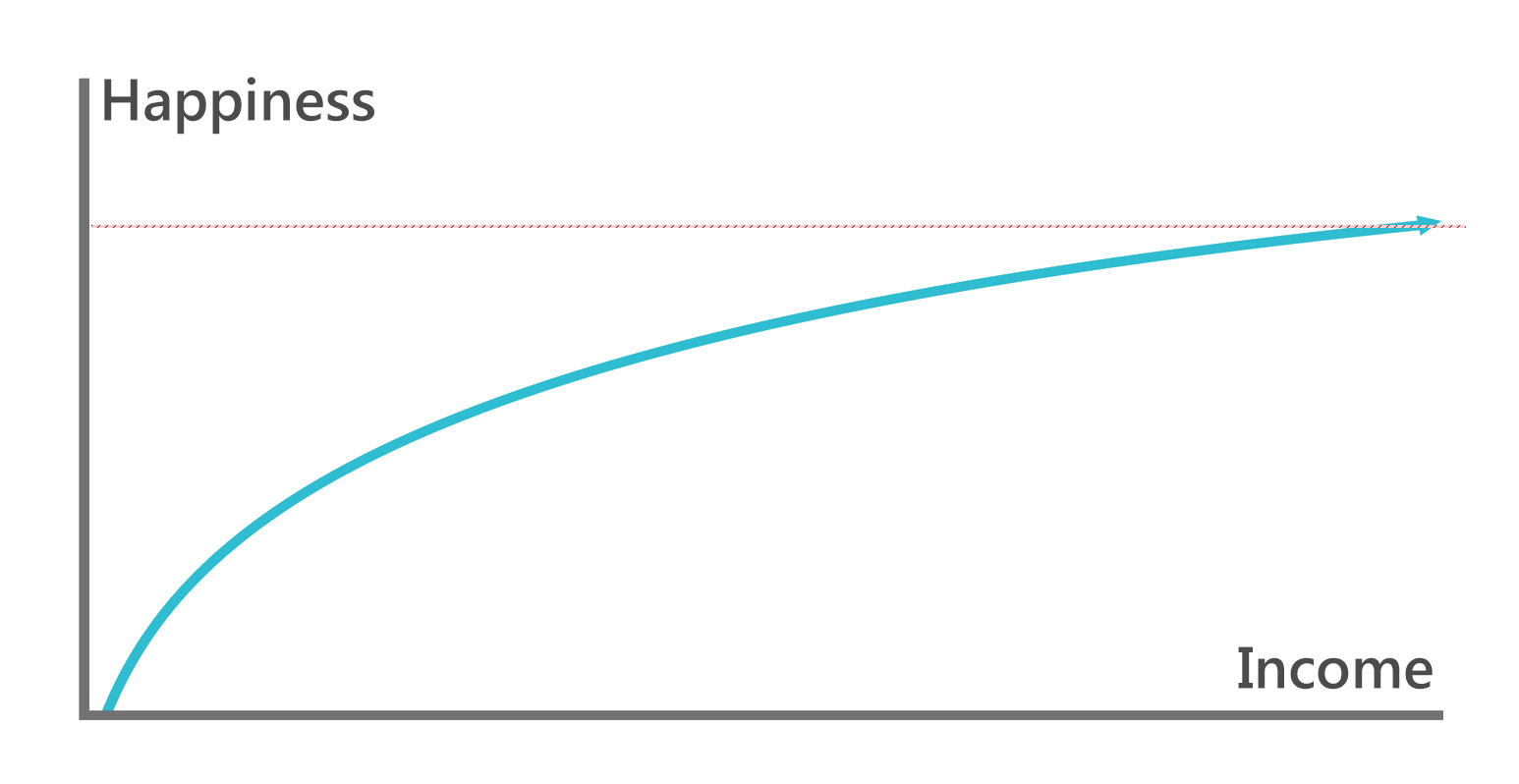
Obviously, you need to adjust that number for your country and its' cost of living. And that is not saying that your happiness won't improve, it will just improve less and less for every thousand additional dollars that you earn.
Knowing this fact is useful but truly understanding it can be powerful. It is difficult for most to internalize and believe it to be true. But the sooner you do, the sooner you can start to focus on other more meaningful aspects of life.
Don't let your financial goals dominate your focus.
Relationship goals
Setting relationship goals and actively working on them is often overlooked. Even though it is possibly the easiest way to dramatically improve your life and your overall happiness.
Having a strong support network of loved ones, friends and family can lead to a very happy and fulfilled life with the standard trappings of "success".
Below I discuss the three most important relationship types. When you are constructing a goal in the relationship category you should probably address each of these three types.
Romantic relationship goals
Even if you are married you should consider addressing your spouse separately. That one-on-one relationship can be a linchpin in your overall happiness.
In an ideal world, how would your interactions be with this person every day? Even on tough days? How would you treat each other even after years of being together?
If you're single. What kind of person are you looking for? Don't make a huge long list of their attributes. Focus on how you would interact with them. Their personal attributes are much less important than the interplay between you both. Having a long list of dealbreaker attributes is not a good idea for a relationship that you want to build to last.
Family relationship goals
This one is tricky in a lot of cases. Some of us are lucky and have loving family members that are easy to get on with. Others, not so lucky.
The fact that we can't choose our family (other than spouses) means that we need to be creative and flexible with our goals. You may need to have specific goals for specific people.
Or, a better way might just be to set a goal about who you are going to be. Someone who is always friendly, loving and supportive regardless of the situation. Easier said than done I know. But if you can become that person. Over time strained relationships with your family members can heal and become positive and add joy to your life.
You only have control of your half of the relationship. Do not stress about that which you cannot control. Consciously decide how you want to act put regular large deposits into the bank of trust and hope that you eventually reap dividends in the relationship. If you don't, at least you can sleep at night knowing that you did your best.
Friend relationship goals
Research has shown that those who have close friends (emotionally and geographically) live longer than those who don't. FB / Insta / twitter friends don't count, unfortunately.
In fact, not having a close network of friends can be as bad for your health as smoking 15 cigarettes per day!
Developing new friendships gets harder and more daunting the older we get. But it is far from impossible and you should be open to making new friends every time you meet someone new. But realistically, nurturing the friends that you already have is a more effective goal for you to set.
Your goal should be to meet in person as frequently as you can and make memories with different activities once per year. A weekend away with your best friends every year can be a fantastic bonding experience and something that everyone can look forward to.
Be fun. It's fun to be fun.
Educational goals
Education has changed a lot over the past 10 years. It is no longer limited to high-school or college degrees. The internet has put some of the best educators in the world at all of our fingertips in affordable ways.
It is becoming more and more important that we adopt the mentality of the lifelong learner. Work is changing too quickly not to.
Most of us will have several different careers in our lifetimes. If we are to succeed, financially and otherwise, we need to constantly learn new skills.
If framed in the right light, having educational goals will help us to achieve our other goals. It can also be epically fun. Learning how to code or dance, or a new language can be engrossing hobbies.
Selecting the right educational goals can be complete life-changers. Spend the time and think carefully about them.
Personal development goals
Personal development or self-improvement is a very general category that can be a catch-all that overlaps with many other categories. That being said, many of my favourite topics fall into it.
The most popular topics for this type of goal, include: improving your productivity/time management (which I am passionate about), becoming more a more confident/positive person, improving your intelligence quotient or emotional intelligence. Shaking bad habits or conquering your fears. See, I told you it was broad :)
The trick with this type of goal is to not have too many. Stop multitasking. Multitasking is mostly a bad idea. Deep work and focus on one of these goals at a time. These types of goals often have a finish line, so can give you a great sense of satisfaction.
Use relatively short "finish-line" goals to build your momentum towards other goals. Success breeds enthusiasm. You need to give yourself some quick-wins.
Career goals
What would you do if you had enough money and you didn't care about what people thought?
Not worrying about what people think is very important here. Forget about thoughts like: I went to university and studied x, so I should work in x.
Thinking about your career though that type of lens allows you to determine if you are on the right ladder or if you need to jump to another.
If you're confident that you are on the right ladder. Then you should set time-bound progression goals. If you regularly think about this type of goal it will affect the hundreds of micro-decisions that you make during a standard work-day.
Having a clear career goal can be very useful when deciding on other types of goals discussed in this chapter. For example, your short to medium term educational goals can be designed to support your career goal by upskilling yourself for the position that you eventually want to get to.
Psychological goals
Thinking about your own psychological health is often overlooked. Too many of us (me included) avoid this topic. We put too much stress on ourselves to become successful.
This can have the opposite effect.
We need regular pit-stops, change the tires, wipe the windshield etc. Without taking the time to take care of ourselves mentally we slow down. This generally happens in an imperceptible way.
Everyone should have regular breaks or activities to de-stress ourselves. Too often we feel that these types of pit-stops are frivolous luxuries. Try not to view them in that light. Without fresh tyres, you are much more likely to get off the track when you come to an inevitable tight corner.
Lifestyle goals
Your lifestyle goals can be very linked to your financial situation. But if you can try and have some that don't require lottery level winnings that you can do right now.
Having your dream house or three foreign holidays per year are not bad long-term goals. But you need to live the journey. Have some lifestyle goals that are attainable without major changes to your finances.
I've broken lifestyle goals into two sub-types. Experiential goals and
Experiential goals
There's a common saying "collect memories, not things". I am a huge fan of this philosophy to life.
Beautiful moments/experiences enrich the soul more than the newest gadget, in my opinion.
Designing and planning experiences for yourself and your family create those magical stories that are told for years to come. I particularly like designing trips away with friends to cement relationships.
Leisure goals
We only live once. It's a dull ride if you don't do your best to enjoy it.
Unfortunately, when you become an adult, nobody else will help you prioritize making your life fun. It's all on you.
Hobbies / friends are important! Don't continuously put off enjoying life until you hit a specific career goal or dollar amount in your bank account. That is the best way to have miserable years if not decades that you cannot get back. Trust me on this.
If you are like me and find it hard to prioritize this type of goal, then look for multi-purpose leisure activities.
Choose leisure activities that are fun but that could potentially make you healthier / wealthier or improve your relationships. Two birds with one stone.
Retirement Goals
We all want to enjoy our retirement. We should start planning for it early. Earlier than most of us do.
If we do start planning early, the only aspect that we generally think about is financial.
Don't get me wrong, that is extremely important. Downgrading our lifestyles when we retire is not an ideal scenario.
But if you think about what your retirement goals are in detail you may come up with really interesting things to do now to prepare.
Maybe you should start learning another language so that you can retire in another country. One with better weather!
Or maybe you'll take up a hobby now that you think would be a great way to spend your free time. Golf is the first one that comes to mind but the options are limitless here. The options are only limited by your imagination.
How to set goals
In the previous chapter, we discussed the primary categories of your life that people tend to set goals in. We list 15 categories. And in the next chapter, I will give you some examples of goals in each of those categories.
But after reading lots of articles on the web I've come to the conclusion that most people confuse goal categories with the techniques available to actually come up with those goals.
Here I am going to discuss the most common methodologies.
Goal-setting methods / techniques / frameworks
Regardless of what technique you use, remember that you do not have goals if they are not written down. Also, keep in mind to set goals that motivate you. If your goals do not inspire action then they are not useful to you.
We're going to discuss 5 frameworks here. With all of these frameworks, it has been shown that you should frame the goal positively rather than negatively. "I will do..." is much more powerful than "I will not do...".
Of the techniques listed below, I personally advocate for the obituary method and I designed the interactive tool accompanying this guide using that method.
Types of goal-setting
- One goal per category technique
- Values first technique
- Purpose first technique
- Why, what, how technique
- SMART goals
One goal per category technique
This technique is simple. You go through the list of categories in chapter 2 and you rack your brain until you can think of one goal for each category.
It is a shotgun approach. There are many flaws with this concept even though it seems to be quite popular online.
The most obvious flaw is that you will have way too many goals. You will also not have any clear hierarchy of importance.
Having this many goals means that you will probably forget all of them quickly and none of them will ever be top-of-mind.
There is also no strong emotions in the goal-setting process. It is more of a chore than a voyage of self-discovery.
Values first technique
The value first approach is better but has prerequisites. You need to be clear on what your values are first, which is not necessarily self-evident.
But once you have that list (it will be far fewer than the goals categories), you have a lens to look at your life through. You can ask yourself, what does someone who values x do? How do they interact with people?
For example if "saving the environment" is one of your values, you might set a goal to change your career into something that is more aligned with this core belief.
Purpose first technique
Similar to the values first approach the purpose first technique requires prerequisites. But if you already know what your purpose in life is, it can be extremely easy to set effective goals by examining aspects of your life through the lens of that purpose.
If you are lucky enough to have a clear purpose to your life, like Elon Musk wanting to make the humans a multi-planetary race. All of his goals, in the long and short-term begin to write themselves. And because he already has his "why" he has the emotion and drive already built in.
Why, what, how technique
If you haven't seen it, you should really watch Simon Sinek's TED talk called start with why. He pitches his method as a tool for marketing communication but it can be adapted to a powerful personal goal-setting technique.
In that talk, think of the "what" as your goals. And every time he says "People don't buy what you do they buy why you do it", think of yourself as the "buyer of your own goals". If you cannot convince yourself to "buy" your own goals, you have not come up with the right framing to motivate yourself to act.
SMART goals
I am sure that you have heard of SMART goals. SMART stands for:
- Specific
- Measurable
- Attainable
- Relevant
- Time-bound
SMART goals describe the anatomy of a well-formed goal.
The idea is that you need to be able to clearly articulate each of the 5 elements before you can consider a goal to be well written.
It was initially designed for workplace goal but it is also effective for many goals in your personal life.
Obviously, there are certain types of personal goals that can be difficult to measure. This is especially true for relationship or spiritual goals. But, that being said it is worth trying to write down all 5 elements for all of your personal goals if you can.
The obituary method
The obituary method is what I decided to use for the interactive tool that comes with this guide.
The reason is that it gives you a great frame of reference to think about what goals you want, not just how to write the goals (like SMART goals). If you are new to writing goals then it is the best starting point.
In chapter 7, I explain how this method works in a lot of detail. But you don't need to read that chapter or understand the technique to use it. Just click on "Launch the tool" in the menu (table of contents on mobile) to get started.
Life goals examples
For each category that we spoke about in chapter 2 we will now give some examples.
For these examples we will not include "why" someone should do them or "what failure to achieve the goal would look like. These things are too personal to speculate on. But if you add any of them to your goals list. Make sure that you do write down your why and failure.
Health goals examples
- I will respect my body / health more and treat it better than I would treat a loved ones health if I had control over it.
- In the next 12 months I will significantly improve my diet by stopping all junk food on weekdays.
- I will set a schedule to regularly get health checkups and act on that information to constantly improve my health.
- I will take responsibility for my own health and educate myself about how to stay healthy and what different foods really do my body.
Financial goals examples
- Earn $x thousand dollars per year within the next 5 years.
- I will be in a position to buy my dream car before my x birthday.
- I never want to have to worry about how much I spend on discretionary items. I should just know without needing to check my accounts to see if I have enough.
- I will completely clear all of my debts in the next 4 years.
- I want to have a rainy day fund with x thousand dollars in it, just in case there is an emergency that I need to deal with.
Educational goals examples
- I will read x books per year every year. Audio books count!
- I will invest x dollars per year into my lifelong education.
- I will do at least x online courses per year into my hobbies. Only fun things!
- In the next x years I will finish my x degree with a final grade of x.
- I will learn how to speak x to a test level of x within the next 2 years.
Personal development goals examples
- I will improve my concentration and ability to do deep work over the next six months by always switching my phone to `do not disturb` when I am working on my goals.
- I will work on my time management and commitments. I will say no to new things more frequently to guarantee that I can deliver on what I have already promised.
- I will deal with things before they become a problem by being more reflective and proactive when it comes to upcoming responsibilities.
- I will do my best to become more empathetic to peoples's problems around me. I will try harder to put myself in their shoes when they are going through difficult times.
- I will take personal responsibility more seriously. I will not blame others for events where I had a partial input into the outcomes.
Relationship goals examples
- I want to be the person that people in my life come to when they are in trouble because they see me as dependable and there for them.
- I want people to view me as an honest and sincere person. I will achieve this by always telling the truth, even when that is difficult.
- I will actively listen to people and not disrespect them by checking my phone when they are trying to say important things to me.
- I will not be the cause of stress in other people's lives. I will always do my best to limit how my actions negatively affect others.
- I want people to enjoy being around me. I will try to limit my bad moods and be the best company that I can be with everyone in my life.
Romantic goals examples
- I want to find a loving, intimate relationship that could lead to marriage in the next 5 years.
- I will consistently work on my relationship with my significant other and regularly delight them and show them that they are loved.
- I need to end my current relationship as it is toxic or not fulfilling me in a meaningful way.
- I will spice up my current relationship by regularly introducing new exciting events and options.
Family Goals examples
- I will contact all of my close family at least once per week to see how they are doing.
- Every year I will try to visit and spend at least a few days in the company of each member of my family.
- I will tell my family on a regular basis how I feel about them and what they mean to me.
- I will have the courage discuss any problems with my close family members and do my part to improve our relationships.
Friends goals examples
- Nourish my lifelong friendships. Video or call or meet each of them at least once per month. The older I get the more valuable they are to my happiness.
- Develop new friendships. Don`t be afraid to meet new people and form deep bonds with them. You are never to old to cultivate friendships.
- Proactively improve my friends lives. Help them. Offer to help them. Be an amazing friend.
- Remove toxic friends from my life. Those that make me feel bad or those that do not genuinely have my best interest at heart.
Career goals examples
- I will start my own business within the next 3 years in an industry that I love and find fascinating.
- I will not be afraid to ask for a promotion that I deserve and will demonstrate my value to my company without compromising my values.
- I will have the courage to change my career. It is never too late. I will take incremental steps now with the aim of getting into the industry in the next 24 months.
- I will constantly strive to find a balance between my work and personal life. To thrive at work I need to recharge and enjoy my personal life. They are intrinsically linked.
- I will actively work on my communication and team work skills. I can learn from my team and they will help me to climb the ladder if I improve with their experience.
Psychological goals examples
- I will surround myself with positive people that want me to be happy. I will remove as many toxic people from my life that I can.
- Once per month I will review my life and my happiness. I will take stock of what I have and express gratitude for it.
- I will stop using the social media apps that promote envy. If these apps are not motivating me to achieve my goals, then they are just making me less happy.
- I will not be afraid to ask my friends and family for help in times of trouble. They are there for me as I am there for them.
- I will meditate for 10 minutes per day and journal so that I am always self aware of what is causing me internal strife and anguish.
Lifestyle goals examples
- I will structure my work and relationship committments this year so that I have more time to myself. Time for me to reflect and to think about my life.
- Learn how to dance the three most popular dance styles in South America (Salsa, Bachata and Merengue)
- Become a role model to someone younger than me. Be there mentor and help them to grow.
- I will self-publish a book in the next 5 years. I will be happy and fulfilled if I can get just 100 people to read it.
Experiential goals examples
- This year I will go skydiving for the first time.
- The next time I am holidays I will learn to snorkel.
- I have always wanted to learn how to ski. I will start saving x dollars per month so that I can go during the next skiing season.
- I will master how to cook my 10 favourite dishes and go to the trouble of cooking at least one of them every week.
Leisure goals examples
- This year I will develop a new hobby that has the potential to also earn me money. I will do it for the enjoyment but the possibility of more will be there if I master it.
- This year I will develop a new hobby that has the potential to make me fitter and healthier. It will not be going to the gym. It needs to be fun and utterly enjoyable to me.
- This year I will develop a new hobby that has the potential to make me smarter. The primary goal is not to get smarter. I should want to do it just for fun.
- I will start a leisure fund. It will be a small pot of money that I can only spend on fun things that I love to do.
Retirement Goals examples
- Put $x into my retirement account every month and increase that amount by 5% per year until I retire.
- Finish paying off my mortgage by the first day that I retire.
- Spend two months per year travelling every year after I retire. Visiting at least two new countries / cities per year.
- Start an online passive income business that can add an extra x hundred dollars per month to my pension by the time I retire.
- Work on my relationships now so that I have lots of people in my life that I share my retirement with.
Life goals quotes
Quotes are a fantastic way to see that our struggles are not unique.
People have been struggling with achieving their goals for millennia.
Reading quotes from famous people from different times in history shows us how little the human condition has changed over time. For me, I find this to be a very comforting fact.
Here are some of my favourite quotes about life goals. For each quote, I will give a little commentary on my thoughts relating to the quote.
If you would like to read other quotes that I like you can find them here.

I wish this was true for all goals but it is for more of them than you might think. Do not underestimate the importance of formatting your goals. You need to become clear on why you want something as well as the consequences of failing. Without knowing these things, you will not have the resolve to do what is necessary.
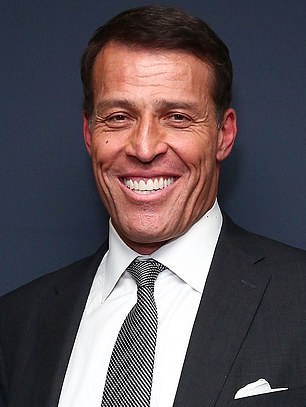
If you have ever done a Tony Robbins programme, you know how he emphasizes visualizations. This quote encapsulates that. If you can mentally see the end of the goal you can boost your motivation to get there.
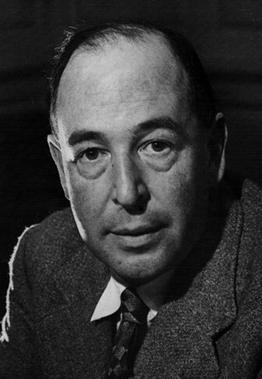
The older I get the more ambitious my goals are becoming. That does not seem to be the case with my friends though. Year after year they become more resigned to the status quo. Don't be that person. Live life and learn like you will live forever.
I don't like using unattributed quotes but this one is too good. It expands on the quote from C.S. Lewis. Don't let your goals die on the vine of mundanity.
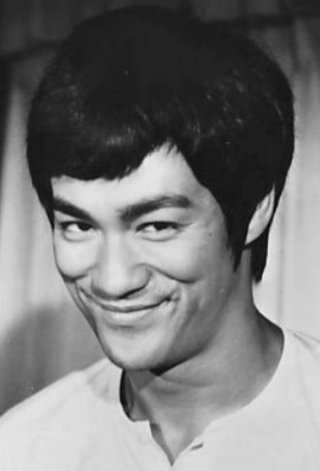
I like Bruce. I like this quote because it re-inforces the idea that the journey can be more important than the destination. Don't put your head down and not smell the roses. You might just miss out on life.
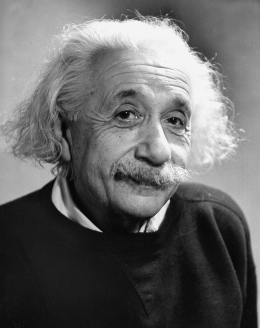
This could be anthem for introverts. I count myself as one of those. I think there is a balance to be struck here. Relationships are a huge part of your overall happiness but they can sometimes be tragically taken away. Having other passions are important too.
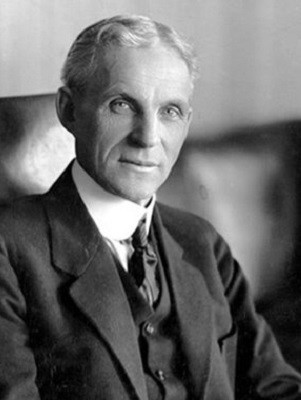
This could have been stated by a modern titan of the automotive world too. If I credited this to Elon Musk, most people would assume that he said it knowing what a prolific achiever that he is.

Brilliant quote and sage advice. 1,500 years does not lessen it's applicability to our modern lives.

This is one of the most frequently used quote on this list, even if the author isn't as famous as his illustrious company. If you cannot take a baby-step towards your goal, you have broken it down into a good enough plan.

There is generally an inverse relationship between our age and the ambition of our goals. The older we get the less ambitious we become. Even though our capicity to actually achieve increases with age.

Another classic quote. This quote is just as valid for 'your world' rather than the entire world. Changing your world is absolutely within your power. If you believe that it is.
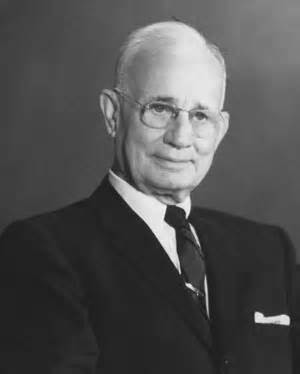
Milestones and deadlines can be overlooked when talking about life goals. To really achieve them you need to break them down into milestones that do have firm deadlines. If you don't you will allow yourself to always push action to tomorrow.

Zig is getting a second quote. It's too good to not include. You will earn a huge amount of personal respect by consistently working on a goal. That self respect will help you in every aspect of your life. It is like compounding interest.

Finally, a word of caution. Having huge goals without the sytsems in place to move towards them is dangerous. If you commit to a goal, you need to make progess, otherwise you will flounder in a negative spiral. Failure can become part of your identity, which can be toxic.
That last quote nicely sets up the next chapter. In it we will discuss strategies for sticking to your goals over the long term and how to keep yourself accountable to yourself.
How to stick to your goals
Life goals are promises to yourself. Failing to stick to those promises reduces the respect that you have for yourself.
If you are not going to stick to the promises that you make to yourself you can become a failure in your own eyes. It is such a shame.
When you decide to make promises to yourself you need to set yourself up for success. You need to design your own systems to keep yourself accountable to the most important person in your world. You.
When I say that you are the most important person in your world I do not mean that in an egotistical way. It is your job to manage yourself and your own mental well being in order that you can support those around you that you care for and love.
Without a focus on your own personal development and desires, everyone else around you suffers. Sometimes in very subtle ways.
Set yourself up for success
There is a quote that I love from James Clear that says: "We do not rise to the level of our goals but we fall to the level of our systems."
This quote cannot be overemphasised enough when it comes to sticking with your life goals. You need to put systems in place. Simple systems that constantly remind you of what you need to do. And why you need / want to do them.
Our memories are fickle. Motivation is fickle. Nobody understands this more than religions. They have instituted regular weekly reminders and special days where you hear the same messages over and over again. We should all learn from their wisdom and set up a regular schedule whereby we remind ourselves of what we want and why we want it.
Weekly / Monthly / Quarterly and yearly reviews
Sunday is my review day. I re-read all of my goals and what I wrote about the goals when I decided that they were important to me.
Without this regular reinforcement, your goals will fall by the wayside. You need to assess your progress and decide what needs to be done in the upcoming week.
I know this all sounds like "work". It is. It should be. Self-respect and achieving your goals is work.
15 minutes per week to reflect on your progress on the most important desires of your life is not something that you will regret doing.
Many productivity experts speak of "keystone habits". Habits that have an impact on all other habits. Most experts list exercise or waking up early as keystone habits but in my humble opinion, regular short reviews of where you are and where you want to be is the most effective keystone habit.
Weekly reviews can easily be done in 15 minutes. Monthly in less than 10 minutes by just reading your weekly reviews. Quarterly and yearly reviews are just as quick by reading the levels below them.
How many goals should I have?
This is a very commonly asked question. Unfortunately, the answer is: it depends.
How old you are, how much free time you have and your current life situation all play a role in that decision.
As a rule though. It should be in the range of three to five. You need to be able to remember them and keep them top-of-mind. You should not need to refer to a notebook or app to be able to accurately recite them to yourself.
For each goal, you should set up a few milestones. If it is a huge goal, then you may need a lot of milestones but again, three to five is a good number if possible.
The power of milestones
Milestones can be considered to be sub-goals but they can more easily written using the SMART goals format even if the main goal is difficult to write in that format.
Your milestones should be outcome and time-based milestones. I will achieve x by y. Setting the outcome is the easy part. Estimating how long it will take to achieve it is difficult.
Don't beat yourself up if you don't meet the deadline. Just reassess your progress on the deadline and try and figure out what you did wrong or what circumstances got in your way. Then set another deadline. The more times you do this the better you will become at setting realistic deadlines.
Reward yourself for progress!
If you do achieve a milestone, celebrate! It is an awesome achievement and you are instantly in the top 5% of people.
Most people don't set goals. Fewer people set milestones. And much fewer people do the work to actually achieve something they set out to do. Take a bow. Treat yourself to something indulgent.
You need to celebrate your wins in order to give yourself the motivation to move on to the next milestone. Do not underestimate this step. It is crucial in forming the habit of achievement.
Life goals to achieve
In chapter 4 I gave a list of goals examples that you can use for inspiration. But I recommend that you use the interactive tool in order to set your own.
The goal-setting process itself is extremely important itself. The reflection on your life and who you are as a person is what makes it powerful. There is work involved in doing that reflection but I hope that the tool and obituary framework will minimize the work by getting you into the correct headspace quickly.
In the next chapter, we will discuss the interactive tool in much more detail. If you do take the time to complete it, you will set three goals (1) a financial goal, (2) a relationship goal and (3) a health goal.
How this tool works
I would not recommend starting on this journey if you are not going to take it seriously or you do not have the time at the moment. You need between 20 minutes to an hour to properly complete this guide.
The more seriously you take it, the more you will get out of it and the longer it will take. If you really think about your answers and visualize your future at each step, you will walk away with something that could be profoundly beneficial to you.
How does this interactive guide work?
The quickest way to get a sense for the guide is to click on the "Watch a preview" button above and watch the 45 second video. But if you would like to keep reading I will explain in detail how everything works and the motivation/research behind the tool.
Here are the four main steps that you will go through. Click on the step to read why they are important.
-
Step 1 You will describe who you want to be. Using your obituary as a framework to express yourself. I have included some suggested answers at each step but you can and should write your own answers where appropriate.
-
Step 2 You will create four life goals for different aspects of life, based on who you decided that want to be in step 1. Your obituary will guide you when deciding on your goals by setting your frame of reference for what is important in life.
-
Step 3 For each goal, you will think about the reason that you want it. How would it affect your life if you achieved that goal?
-
Step 4 After thinking about why you want to achieve your goals you will visualize the opposite. By describing how your life if you fail.
-
Step 5 You will then set one milestone, twelve months from today, which will be a stepping stone towards achieving your goal.
Step 1 - Write your obituary
To discover your life purpose and goals in this app, the first thing that you will do is write your obituary. It might sound a bit morbid but it is the best starting point and I’ve made it as easy as possible for you.
Imagine that you are an observer standing behind everyone at your funeral. What would you want people to say about you? Who do you want to be there? How did you impact their lives? And how do you want them to remember you?
If you can answer these questions honestly and with clarity. You know how you should live today. You know how you should treat people. Considering how people perceive you can be toxic, especially in our Instagram-able world. But, if done in a balanced way it can inspire you to live your life the right way.
Step 2 - Set your goals
The most likely reason that you have not achieved your goals in the past, is that you did not figure out explicitly WHY you wanted those goals. Goals are only powerful if you have articulated a meaningful reason that you want them. Without a compelling reason, goals are impotent. Do not underestimate the power of why.
Step 3 - Visualize failure of your life plan
This is another counter-intuitive step in life planning and goal setting. You should be crystal-clear about what your life would look like if you do not achieve your goals.
Looking at your goals from this perspective reinforces the reasons why you do want to achieve your goals and can be a tremendous motivator when times get hard.
For that reason when setting goals and milestones using this guide, I will ask you to visualize failure. The clearer you are about your emotions and how you would feel to fail, the more powerful your motivation to succeed will be.
Step 4 - S.M.A.R.T. Milestones
We will only set one milestone for each goal in this guide, but I do encourage you to set more. You need to set points in time where you can check your progress to encourage action today.
Milestones are the most effective way of doing this. They do need to be realistic and measurable. As mentioned in a previous chapter, in the business world, "SMART goals" are very common. Just to remind you, it stands for: Specific, Measurable, Achievable, Relevant, and Timely. But for personal life goals, I believe that you should have "SMART milestones" instead of goals because your time-frame is significantly different.
The life-plan hierarchy
The primary angstrom.life application is built around the "life-plan hierarchy" that you can see above. The "life-plan hierarchy" is my working title. It’s not as catchy as Maslow's hierarchy of needs but you get the idea :)
The image below shows the steps of that hierarchy that we will use in this free guide today. Define who you want to be. Set goals based on that and create milestones to help you achieve the goals.
Horizontal explainer The full process for achieving your goals in life should include breaking your milestones into projects and your projects into tasks that you take action on today!
If you already know your goals in life, you are way ahead of most people. But, if they are not written down and reviewed, they might as well not exist. My advice to you would be to start getting granular. Set 1-year, 3-year and 5-year milestone. Be detailed, use visuals if you can. Describe how success would feel at each milestone and also how you would feel if you failed to achieve the milestones.
Then move down the "life-plan hierarchy" and create all the projects that will need to complete to hit your 1-year milestone. Once you have all the projects, move down the hierarchy again and create all the bite-sized tasks needed to complete each project.
As the joke goes, "How do you eat an elephant? One bite at a time".
Personal goals - Why they matter
The answer to this is simple. Without having a dartboard you are just throwing darts at a wall. You can't be happy if you don't know if you hit a triple-twenty or a bullseye. You can't feel a sense of accomplishment or improve without the board telling you how close or far away you are.
Life goals are our dartboard. We measure our progress against it across different dimensions of our life. If we don't have these goals and the why behind them we will measure our life against other people and how they are doing (or how pretty their Instagram photos are). That is why I feel this guide is important.
Why did you build this free life purpose app?
For the last year, I have been building an app that helps you achieve your goals. It is more like a life design app or life planner than just about your goals. One feature that was sorely missing from the app was a way for users to find their life goals in the first place. I am regularly asked "what life goals should I have?".
I started researching how to help my customers figure out how they can set their goals. I realized that there were no step-by-step guides out there so I decided to try and build one myself. I came to the conclusion as I built the feature that it could do people a lot good.
I decided that I would not put only give it to my customers but I would also make this feature free to anyone who wanted to use it. I will continue to develop this free app as I get feedback from people like you. So please do email me with any thoughts that you have, good or bad. I have thick skin, unlike Tom Cruise in a Few Good Men, I can “handle the truth” :). My email address is kelvin@angstrom.life.
All too often in life, we start by thinking about projects that we need to complete. We then take out a piece of paper or one of the thousands of project management apps and list all the tasks that we need to do to finish the project. In my opinion, this is the wrong way to think about things. You should start at the top of the pyramid to the right and work your way down from there. Not start halfway up and only head down.
Conclusion
Lots of people inspired this guide! I read as much as I could on the subject. The most important influences that I need to mention are: Tony Robbins a lot but I think that he has some genius ideas and I respect what he has achieved a lot. Gabriele Oettingen and her some of her research papers. Stephen Covey’s books and his extremely famous saying ”Begin with the end in mind”.
I also have to give credit to Angstom.life users for asking deep and intelligent questions that forced me to really think about this problem. Hopefully, it lives up to their expectations and yours.
If you feel that there are people you know that would benefit from seeing this guide. Please do share it with them.